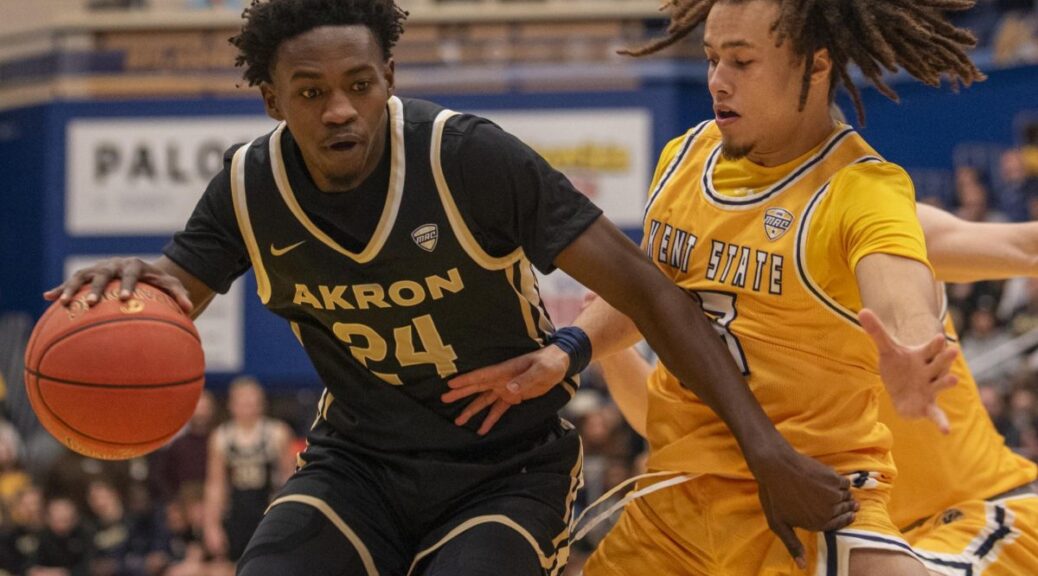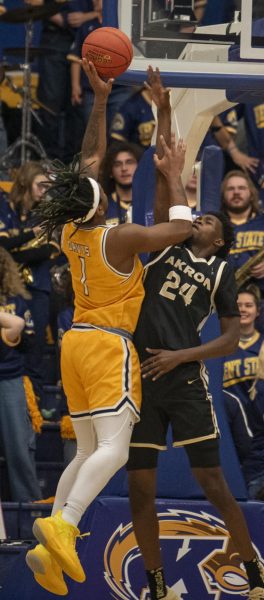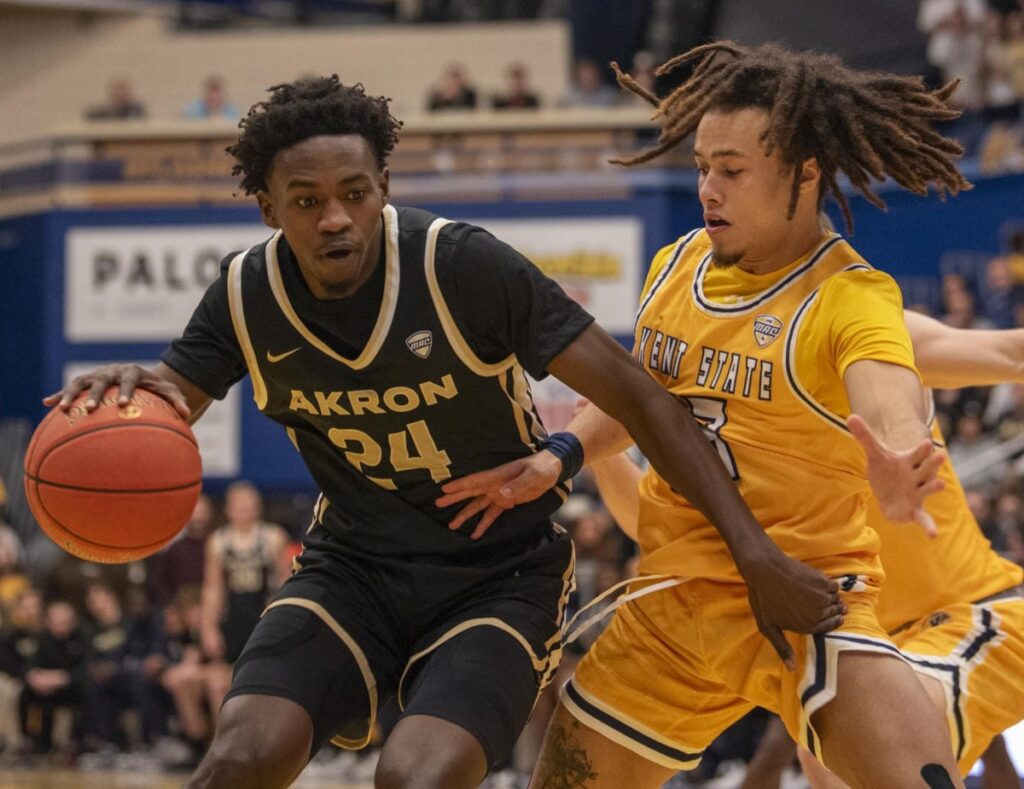
Ohio AG Dave Yost Suing the NCAA: How a local athlete has been affected by the transfer portal
On December 7th, Ohio Attorney General Dave Yost announced he was suing the NCAA over their transfer eligibility rules. Yost’s efforts were joined by Colorado, Illinois, New York, North Carolina, Tennessee and West Virginia. Most recently Minnesota, Mississippi, Virginia, and even the US Department of Justice have joined Yost’s lawsuit.
“The ‘AA’ in NCAA might as well stand for ‘arbitrary and atrocious,’” Yost said in a December press conference. “The transfer eligibility rule needlessly curtails the fundamental rights of college athletes.”
Yost has filed an antitrust lawsuit alleging that the transfer rule is, “an illegal restraint on college athletes’ ability to market their labor and control their education.” The transfer rule requires all multiple-time transfers to sit out a year and subsequently lose that year of eligibility.
On December 13th, Judge John Preston Bailey issued a temporary restraining order, or TRO, that prohibited the NCAA from enforcing their transfer rules. This was initially a 14-day TRO but was later extended to a preliminary injunction which means athletes can safely compete throughout the entire 2023-2024 athletic season without fear of punishment from the NCAA.
In 2021, the NCAA removed the requirement for first-time transfers, multiple time transfers are able to petition or apply for waivers to regain their eligibility with varying success. In March 2023, the NCAA changed their guidelines for what reasons for transferring would be eligible for a waiver. Things like coaching changes, scholarship adjustments, or decreased playing opportunities are no longer eligible reasons.
“An undergraduate transfer waiver will only be considered for student-athletes who transfer for reasons related to the student-athlete’s physical or mental health and well-being; due to exigent circumstances outside the student-athlete’s control (e.g., physical or sexual assault or discrimination based on a protected class); or assertions involving diagnosed education impacting disabilities.”
NCAA March 2023
Student athletes have 4-5 years of undergraduate eligibility and an additional year of graduate eligibility should a school offer it to them. The NCAA states that student-athlete transfers slow their progress toward a degree and that with a transfer to a different school and program athletes should be focused on their academics.
According to the NCAA, approximately 21,685 student-athletes entered the transfer portal in the 2022-2023 season. 3% or 651 student-athletes are multiple-time transfers.

Since March 2023, those athletes have fought for their right to play the sport they love and have dedicated their lives to. One of them was Akron University’s starting guard Ali Ali, who transferred back to Akron after playing a season at Butler.
Ali played his first three seasons at Akron before transferring to Butler for the 2022-2023 season but then decided to transfer back to Akron for his final year of undergraduate eligibility.

Like all multiple-time transfers Ali was told he had to sit out a year and as a result, he applied for a waiver to regain his eligibility. Twice he was denied but finally, after a third time his waiver was approved but by then, Ali had missed the first eight games of the season.
“It was definitely tough and it was not fair, especially with it being my last year”
To many people missing a few games or even a full season may not be a big deal but to players it is everything.
Ali Ali
“Basketball they like more younger players, so if you’re in college for six years you’re coming into the professional aspect you’re trying to get into the NBA at 24, 25 maybe for some kids. It makes no sense to get a 24 year old 6th year college guy who’s body has been through who knows how many aggressive practices with school and everything versus a kid who’s been in college for three years.”
But beyond the NBA draft Ali would be facing another major issue should he only be allowed to play for his graduate year
“I wouldn’t get any financial aid since I would be in grad school, so that was also a big part because my mom makes $20,000 a year so missing out on financial aid and not playing, or playing as a 6th year and that just decreases your value a lot”

As for Ali, he’s getting ready for the final stretch of the regular season and hopefully a trip to the MAC Tournament. While the transfer eligibility rules will no longer affect Ali at the end of the year, he has family he hopes will get the opportunity to play wherever they want.
Picture courtesy of Cadie Pierce
“I have a younger brother in high school and so I definitely want to see things change in the net year or two.”
A judge has yet to set a trial date for Attorney General Yost’s lawsuit however a similar lawsuit in Tennesee regarding student athletes’ NIL rights ended a preliminary injunction last Tuesday.